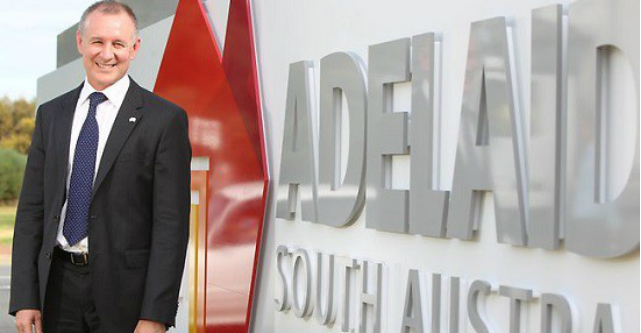
Jay Weatherill opened Open State, the 10-day innovation and collaboration meta-festival in South Australia, on Wednesday with a challenge to his bureaucracy.
Can it lead by example in a new sharing economy?
South Australia’s Collaborative Economy Innovation Challenge seeks to make the state the new home for this new low-footprint economic and entrepreneurship model, and is still in the design (co-design) and research phase.
It seeks to use all the assets at the state’s disposal to bring this vision to reality: its people, its creativity, and its public sector.
“All governments around the world own and operate all kinds of public assets, things like schools, halls, cars, machinery, and sporting grounds,” said Weatherill.
“There must be a better way of exploiting blatant unused assets so that public value can be increased, jobs created, and service delivery improved.
“Is there a way to manage the fleet of government-owned vehicles to advantage disadvantaged people or to cut carbon emissions?”
This question is typical of the type of challenges that the Open State event is posing, drawing on the talents of the community, and especially, looking beyond government for all the answers.
Weatherill frames this as government posing the questions, outlining the objectives, but not dictating the solution that might emerge.
Reunite the public sector with the community
Open State reflects the work thousands of South Australian public servants are doing to empower citizens to have their say.
Citizens Juries, Country Cabinets and GovChat foster greater engagement with the community and create new opportunities.
They are just three of the initiatives that are being managed by the SA Department of the Premier and Cabinet to connect with South Australians.
Weatherill is keen to reset perceptions of distrust and disconnection, a challenge not unique to South Australia, or even the nation.
“It draws on my belief that the single biggest challenge that is facing this community is distrust in politics, and distrust in politicians.
“What if the problem is the other way around? What if it’s that politicians have lost their trust in people? What we need to do is reconnect people with the decisions in their lives.
“That can be a scary proposition for politicians. Some regard that as handing over power to the mob, and what can happen if you do that.
“I fundamentally believe in their intelligence and wisdom of our community.”
Listening, not shouting loudly to the exclusion of anyone else, is central to making that work, Weatherill says.
Entering into a dialogue that faces real choices, putting the citizen in the position of a decision-maker.
That doesn’t mean that the public sector is irrelevant, redundant, or replaceable, but Weatherill does want the public sector to treat the community as citizens, not subjects.
“We must get away from this notion that government is somehow this ‘other’, that is separated emotionally and intellectually and physically from the broader community that it seeks to serve … public servants are just ordinary people who have devoted their lives to try to make society better.”
This article was originally published on The Mandarin.
Follow StartupSmart on Facebook, Twitter, LinkedIn and iTunes.


COMMENTS
SmartCompany is committed to hosting lively discussions. Help us keep the conversation useful, interesting and welcoming. We aim to publish comments quickly in the interest of promoting robust conversation, but we’re a small team and we deploy filters to protect against legal risk. Occasionally your comment may be held up while it is being reviewed, but we’re working as fast as we can to keep the conversation rolling.
The SmartCompany comment section is members-only content. Please subscribe to leave a comment.
The SmartCompany comment section is members-only content. Please login to leave a comment.